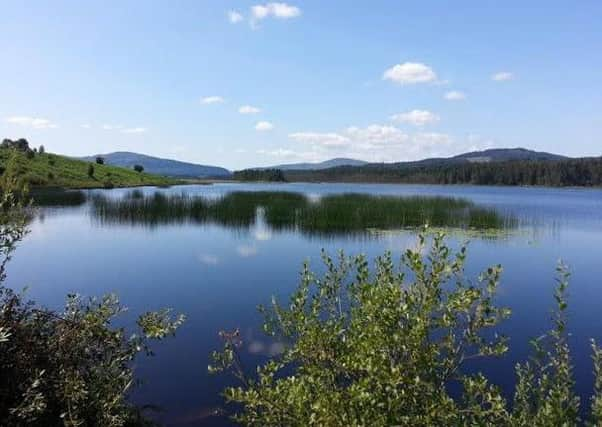Popular Scottish names and their meanings (part four)


Galloway
Deriving from the region and former kingdom of Galloway in south-west Scotland. The name comes from the Gaelic Gall-Gadal, meaning land of the Gaelic-Norse, in recognition of the Scandinavian influence of the region from the 9th to 11th century.
Gilchrist
It derives from the Gaelic word gille meaning servant. The name thus means servant of Christ.
Gillespie
Advertisement
Hide AdDerives from the Gaelic gille easbuig meaning servant of the bishop. This harks back to the pre-Reformation days when the Scottish church had bishops.
Glen, Glenn
Derives from the Gaelic glean meaning valley.
Gordon
The Gordon family has been associated with the north-east of Scotland since the 13th century, but the name originates from a place name in the Borders that means either hill fort or great fort.
Gordon has given its name to the Scottish regiment the Gordon Highlanders, the Scottish dance called the Gay Gordons, and Gordon’s gin, which was first produced by one Alexander Gordon in 1769.
Graham, Grahame, Graeme
The name derives from the Anglo-Norman noble family di Graham who came to Scotland in the 12th century bringing a surname that may have originated from the Lincolnshire town of Grantham, which means gravel settlement.
The Grahams became established in Lothian, Strathearn and Montrose and have played a major part in Scottish history as supporters of the Stewarts.
Grant
The name derives from the French word grand meaning large and the Grant clan was concentrated in Banff. The Highland town of Grantown-on-Spey is named after the Grant family.
Advertisement
Hide AdGray Scottish spelling of the English Grey. The name comes from the colour and means grey haired.
Gregor
Scottish version of the name Gregory which means watchful in its original Greek and also occurs in the famous clan name MacGregor.
Grieve
Advertisement
Hide AdOriginated from the Borders. The name does not derive from mourning or grave digging as expected, but rather from the English word greve meaning steward or estate manager.
Gunn
Originated in Caithness and comes from the Norse word gunnar meaning warrior.
Guthrie
Originates from a village in Angus. The place name is derived from the Gaelic gaoth or gaothair and means windy place.
Haig
Became established in the Borders but originated as a Norman name. The origins of the name are in several places whose names include the Norse word Hagi meaning enclosure.
Hamilton
Derives from the Norman family of de Hameldon. They took their name from the Hamshire town of Hambledon, whose name derives from the Old English hamel dun meaning crooked hill.
Hannay
Originated in Galloway and possibly derives from the Irish surname O’Hannaidh that means son of Annach.
Harkness
Advertisement
Hide AdBecame established in Dumfries and Galloway. The name is of uncertain origin, but probably derives from an Old English first name Hereca combined with the Old English naess or Norse nes meaning headland.
Harris
Harris is the southern part of the Isle of Lewis and Harris in the Outer Hebrides. The Gaelic name is Na Hearadh, but the name originally comes from the Old Norse Haerri meaning higher island, as Harris has more high hills than Lewis to the north.
Hay
Advertisement
Hide AdSurname that means hedge, whether from the Old English word haeg or the French word haia. In the case of the French word, it was the Norman family of de la Haye who brought the name to Britain.
Henderson
While this surname is found throughout Britain, it has been long popular in Scotland. The name derives from son of Henry or Hendry. The name Henry comes from the French name Henri meaning ruler of an enclosure.
Heriot, Herriot
Originates from the Midlothian village of Heriot, which takes its name from the medieval English word heriot. This is a complicated legal term meaning land or some other form of death duty paid or given to the lord on the death of his tenant.
Hislop
The name comes from the Norse word hasl meaning hazel and the Old English word hope meaning hollow or grove.
Home, Hume
The name is either a variation of the English surname Holm, which means either island dweller or dweller on dry land, or else derives from a place called Home in Berwickshie.
Houston
Takes its name from the village of Houston in Renfrewshire. The village was named after a 12th-century Norman landowner Hugh de Padinam, which translates literally as Hugh’s town.
Hunter
Advertisement
Hide AdThe surname is found throughout Britain and took its name from the occupation of huntsman or hunter. In Scotland, Hunters became established in Ayrshire.
Hutton
Predominantly Scottish surname that is derived from the Old English hoh meaning ridge and ton meaning settlement.
Inglis
Advertisement
Hide AdOriginated in the Lowlands. The name is derived from the Scots for an English person or an English speaking person.
Inkster
Surname which originated in Shetland. The name comes from a Norse place name Ingsetter meaning Ing’s settlement.
Innes
The name means island dweller. It comes from the Gaelic word meaning inis, meaning islet. The name originated in Moray at a place meaning Innes.
Irvine, Irving
Irvine takes its name from the town in Ayrshire, which in turn takes its name from the River Irvine. The name either means white or brown river.